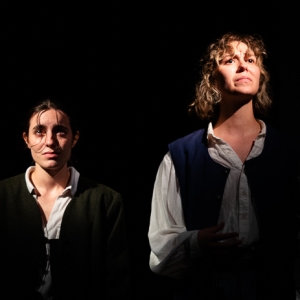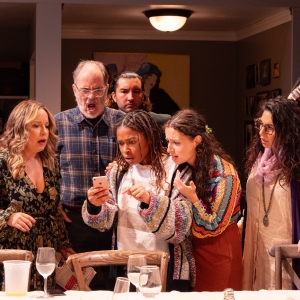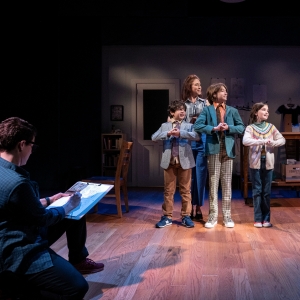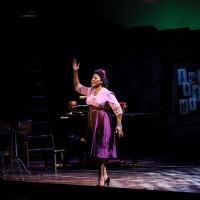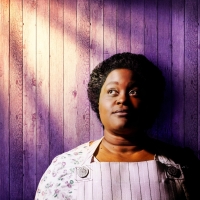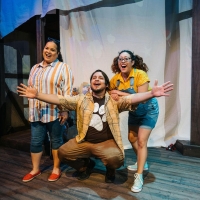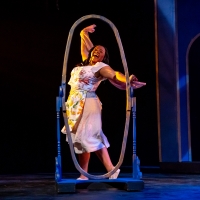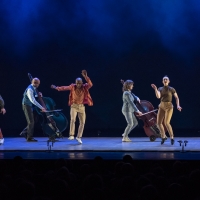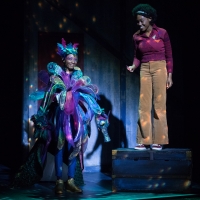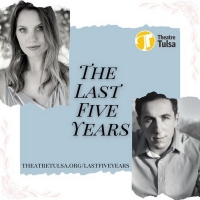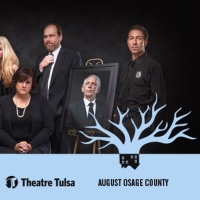
Dara is a writer and advocate with a background in leadership development and education. She graduated with honors from Columbia University, completing a degree in English and Comparative Literature focused on contemporary drama. While at Columbia, she was selected for the Oxbridge Scholars Program and a theatre education internship with The 52nd Street Project. Teach for America brought her to Oklahoma, where she was a founding member of the inclusion council at CAP Tulsa and co-founded the Gay-Straight Alliance at the high school where she taught English. She also worked in operations at a nonprofit organization that identifies and connects leaders in the greater Tulsa community. Dara currently works at the Good Food Institute, where she plans and writes donor communications to inspire GFI's global community of supporters. She is a member of the Sentient Media Writers' Collective and has mentored with Magnify Mentoring and the Odyssey Mentoring Program. Dara serves on the board of DC Veg Week, an organization working to increase compassion toward animals in Washington DC.
Favorite Stories:
- Review: FUN HOME at Studio Theatre - One of my favorite musicals, performed with extra heart.
- COME FROM AWAY: In Concert at the Lincoln Memorial - A one-night-only unforgettable experience.
- BWW Review: The Orbit Initiative's Hamlet - Shakespeare over Zoom during the early pandemic.
- BWW Interview: Theatre Tulsa's Jarrod Kopp - A conversation with the executive director Tulsa's oldest nonprofit theatre.
- BWW Review: SUNDAY IN THE PARK WITH GEORGE at American Theatre Company - Sondheim in Tulsa.
September 22, 2024
What happens to the characters in a play when they’re not on stage? Do they continue to exist in a narrative limbo outside of time? Does the paradox of characters without stories parallel how we struggle to find meaning in life’s entrances and exits?
April 15, 2024
STC’s Macbeth highlights brutal pairs: war and domestic life, grief and humor, brief words and permanent consequences. While the setting could feel unassuming—indeed, audiences must make their way through the parking lot of a Home Depot when arriving via metro—it also shows how extravagant it is to create a theatre space from scratch. This over-the-top, hollowed-out aesthetic fits the world of the play, where titles and status belie a fear of impermanence. Combined with raw, vulnerable performances, this is a powerful take on the timeless tragedy.
March 18, 2024
At the Wedding is a comedy with tragedy sprinkled in like celebratory confetti that proves difficult to clean up once dispersed. It tries to squeeze in a lot of different ideas, tones, and resonances into barely over an hour. Not all of it lands, but there are seriously funny moments mixed in with the ones that fall flat–and in a story about messy resilience, the unevenness sometimes works.
October 17, 2023
Superheroes are larger than life, and so is the family at the heart of Jenny Rachel Weiner’s new play, The Chameleon. The story revolves around a series of wrenching decisions for actor Riz, as she’s poised to start filming her breakout role at age 39 in a new superhero franchise.
July 3, 2023
Fun Home made history by opening the door for a more queer future for musical theatre—and Studio Theatre’s production presents every character’s humanity and each meticulously crafted beat with intensity and grace.
April 2, 2023
The Jungle focuses on the experiences of a community of migrants in a real encampment in Calais and was inspired by the playwrights’ work at the actual camp. From its rich design to its phenomenal ensemble company, The Jungle is a wrenching, one-of-a-kind performance that shouldn’t be missed.
January 22, 2023
Inspired by the true story of the founder and director of the National Negro Opera Company, The Passion of Mary Cardwell Dawson packs untold history, outstanding vocal talent, and intensity fit for its title into a short 70 minutes.
August 25, 2022
The Color Purple is a musical about survival, resilience, and healing. With direction by Timothy Douglas and music direction by Mark G. Meadows, Signature Theatre takes the show’s life-affirming heartbeat to a joyful fever pitch with a beautifully executed production propelled by a truly exceptional cast.
July 10, 2022
Science is everything and everywhere in The Amazing Adventures of Dr. Wonderful and Her Dog!, a bubbly musical for children at The Keegan Theatre that takes audiences on a pillow-fort spaceship journey. With a book and lyrics by Lauren Gunderson and music by Bree Lowdermilk, this show packs a punch of educational material and hummable melodies.
March 27, 2022
The Merchant of Venice is traditionally categorized as a comedy, but the character of Shylock anchors one of Shakespeare’s most maddening tragic arcs. Here, Shylock is played by the magnificent John Douglas Thompson, whose powerful interpretations of the character's frank yet contorted appeals for justice make this production unmissable.
December 6, 2021
The story of Cinderella has been told and retold around the world countless times, from its probable origins in Egypt to the Brothers Grimm version to dozens of film and TV renditions. Synetic Theater’s adaptation transcends boundaries of age and language by presenting a wordless version of the classic story designed to charm children and adults.
December 5, 2021
Dorrance Dance notes on their website that “tap dance is a subversive form.” The radical delight, playfulness, and palpable trust between the members of the Dorrance Dance company feels beautifully subversive in another holiday season of covid anxiety, distancing, and skepticism. What better time, then, for Dorrance Dance to share tap dancing with the next generation and celebrate its legacy of resilience and joy in the face of adversity.
September 14, 2021
On the eve of the 20th anniversary of 9/11, the Reflecting Pool on the National Mall was lined with lawn chairs and picnic blankets, and the surrounding lawns were packed with thousands of people eagerly awaiting a performance on the steps of the Lincoln Memorial. These outdoor theatergoers were gathered to see a free one-night-only concert production of the Tony-winning musical Come From Away, a work that invites us to process unthinkable tragedy through storytelling and song.
September 6, 2021
The Kennedy Center's Performances for Young Audiences season is back, and it kicked off with a world premiere adaptation of the young adult fantasy classic A Wind in the Door. The whirlwind performance brings the novel's unique blend of sci-fi and whimsical poetry to life.
May 6, 2021
If Theatre Tulsa weren’t already a wellspring of stellar live performances, I would consider encouraging them to go into the movie business.
May 1, 2021
Midnight at The Never Get begins as a cabaret act that transforms into a love story and concludes as a meditation on the way we grieve our past selves. The entire show takes place in a 1960s nightclub where things are not quite as they seem: the star of the act, singer Trevor Copeland (Sam Bolen, who also co-conceived the show), has died, and he's chosen to spend his afterlife inside a cabaret of songs and stories. We are the audience to Trevor's memories as he takes us on a journey through a chapter of his past in which he performed in a nightclub routine with the love of his life, songwriter Arthur Brightman (Christian Douglas).
June 12, 2020
Traditionalists might lament the transition of an ancient art form to the medium of a glowing rectangle. However, we all must come to terms with the fact that this is theatre in the age of covid-19, whether we long for the buzz of packed houses or not. The Orbit Initiative has stretched the boundaries of what it means to create truly equitable productions, and in doing so, they have provided a potential solution to the paradox of performing live while socially-distanced.
February 20, 2020
If you've seen American family dramas, you've already seen arguments erupt around the dinner table, secrets whispered in dark corners, and pontification from oblivious patriarchs - but in August: Osage County, playwright Tracy Letts makes a bid for the most grand and outrageous possible rendering of these tropes. How wonderful then for Tulsa audiences that his play is set just a few miles from home, near Pawhuska, OK: while it takes a few scenes to become acquainted with the prickly Weston family, we can't help but be immediately understanding of their plains-induced malaise.
January 24, 2020
It's rare to discover a new play that's so topical yet unexpected that any complete description of its merits might spoil the experience for future audiences. The Nostalgia Will Eat Itself, by native Tulsan John Fisher, doesn't just provide suspense, but also a healthy dose of self-awareness, humor, understated insight, and humility.
Videos



